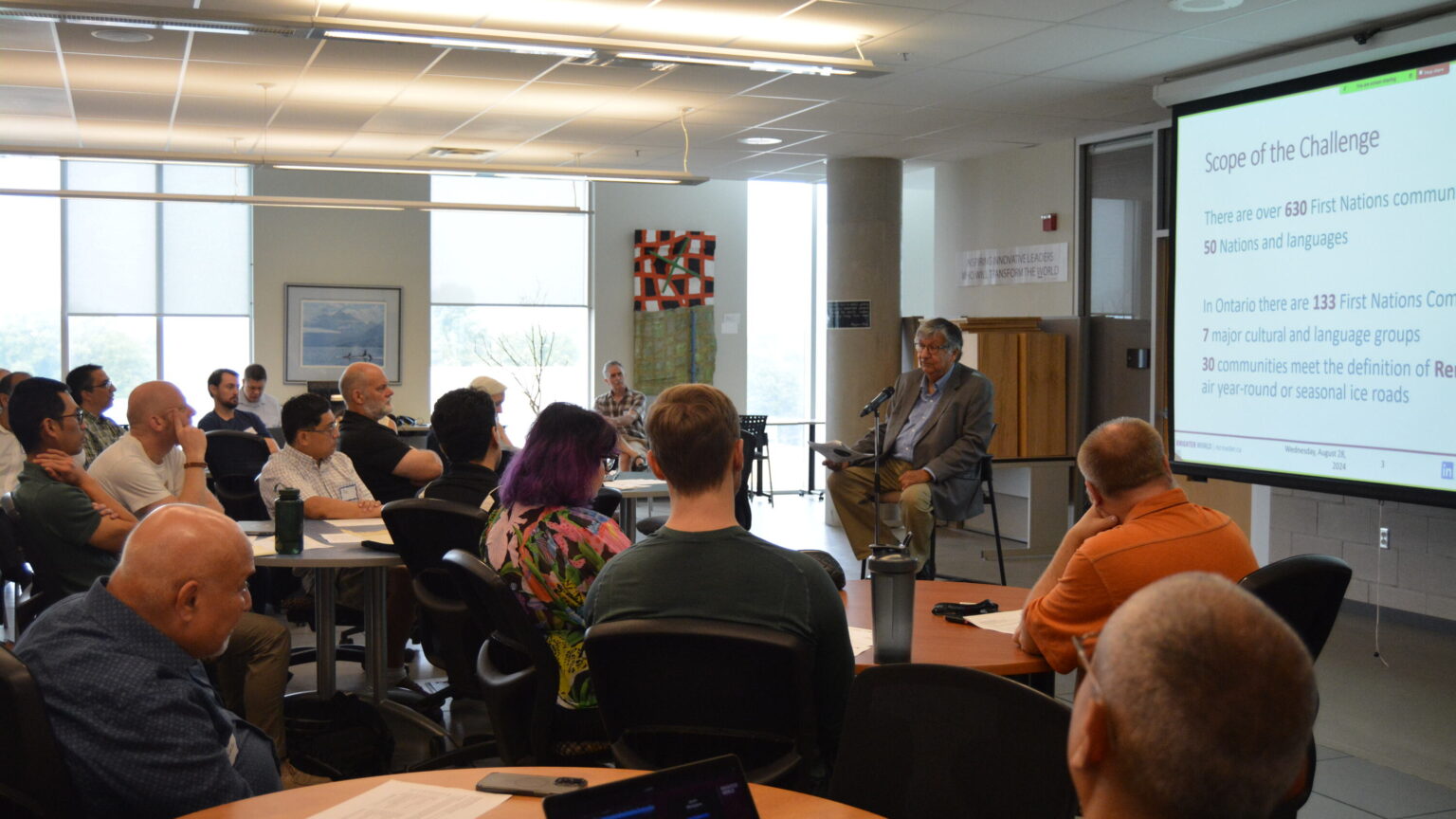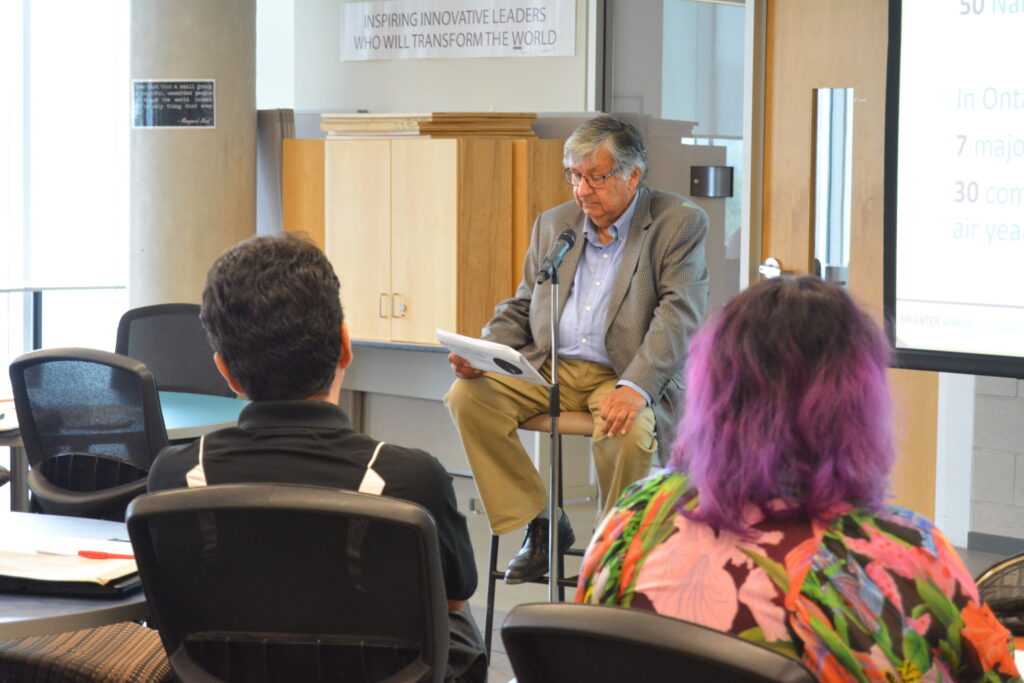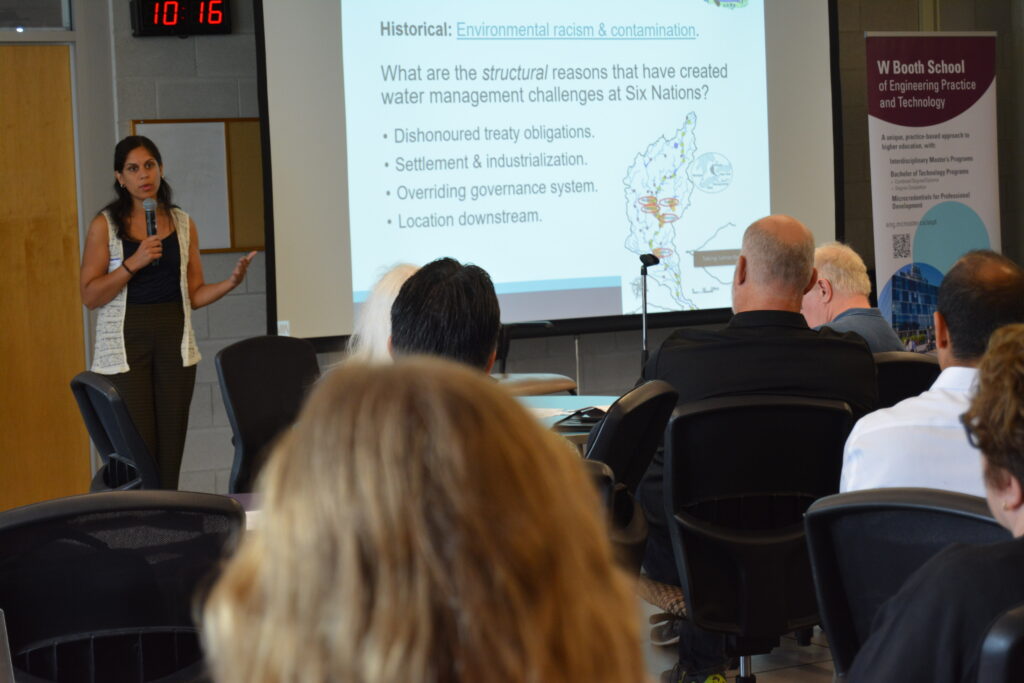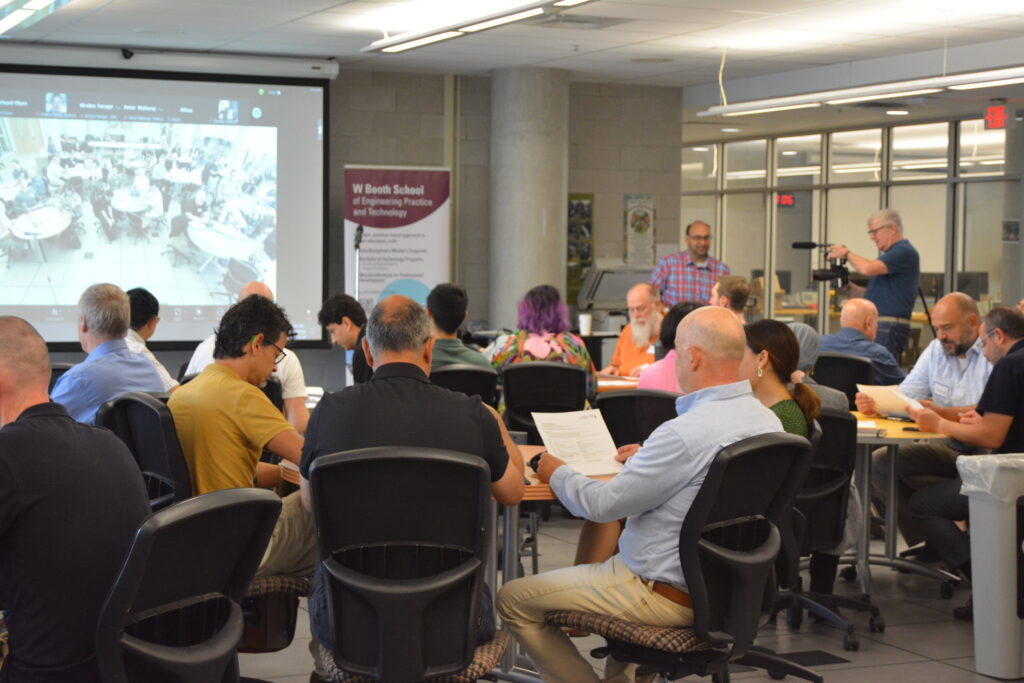
“Reconciliation is not just a word; it’s a commitment to understanding and to action,” said Barry Hill.
Hill’s statement captured the spirit of the second annual Opportunity Marketplace held at the W Booth School in August.
Launched by Community Engagement Coordinators Salman Bawa and Richard Allen in 2023, Opportunity Marketplace facilitates the exchange of teaching, learning and research opportunities among university faculty and representatives from the public, private and not-for- profit sectors.
This year’s event brought together approximately 50 McMaster staff and faculty, and external partners to discuss pressing issues and potential solutions around the theme: Meeting the needs of Canada’s remote communities.
Hill – an Indigenous leader, McMaster Engineering alumnus and the Faculty’s Engineer-in-Residence – delivered a talk titled “Canadian Indigenous Communities: Toward a Better Future” in which he highlighted several partnership opportunities that align with McMaster’s capabilities and recommended a way forward.

“When we engage with remote communities, we must do so with respect and a deep appreciation of their histories, cultures and the unique challenges they face,” said Hill. “Only then can we truly collaborate and create meaningful change.”
When we engage with remote communities, we must do so with respect and a deep appreciation of their histories, cultures and the unique challenges they face, Only then can we truly collaborate and create meaningful change.
Throughout the event, experts presented on select topics. Rohini Patel, a Postdoctoral Research Fellow in McMaster’s Indigenous Studies Department, underscored the historical and structural factors contributing to ongoing water crises in Indigenous communities. She also spoke about the cultural importance of water, noting, “traditional Haudenosaunee perspectives speak in terms of responsibilities with respect to water, not in terms of water rights alone.”

Healthcare challenges in northern communities were addressed by Kirsten Farago, VP of Clinical Operations at Group Health Centre (GHC) in Sault Ste. Marie. Farago referenced her community’s struggles with primary care provider recruitment, a challenge felt across the province. To ensure continued access to care, GHC is exploring innovative models to improve healthcare access in the Algoma Region.
Other guest presenters spoke on the topics of wildfires, renewable energy, food sovereignty and access to the digital economy through broadband internet services.
The program also included topic-specific roundtable discussions facilitated by McMaster faculty and report-outs on potential community-engaged teaching, learning and research opportunities.
“The challenges of contemporary times, coupled with the increasing pace of the magnitude of the existential threat posed by these larger-than-life challenges, such as climate change and poverty, and their snowballing impacts which we see in wildfires, energy consumption, food insecurity, water accessibility, healthcare and housing crisis, must not be mistaken to be the job of one category of professionals,” says organizer Salman Bawa.
“The complexity of these challenges begs for the unity of traditionally siloed operatives; that folks from engineering, technology, healthcare, life sciences, social sciences, humanities, arts and communications, design and policy, must come together to embark on the unity journey that would help prepare a more happy, and a more secure future. And that is where our Opportunity Marketplace comes in: it is an attempt to foster and nurture an environment conducive to connectivity and continuity.”
Allen echoes Bawa’s sentiments, emphasizing the role the W Booth School can play in developing and maintaining long-term relationships.
“This year’s Opportunity Marketplace opened the door to engage a range of remote communities with diverse needs that match our school’s problem-solving strengths and reputation for practice-based education,” says Allen. “Moving forward, the goal is to translate the opportunities we discussed into well-defined projects our faculty and students can help implement during this academic year.”

